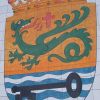 Whites against apartheid
Whites against apartheid
The death this past week end of anti-apartheid cleric Dr Nico
Smith, coming so soon after the death of another anti-apartheid
struggle veteran, Sheena Duncan, has made more urgent for me the
writing of a series of Hubs which I have long planned. These Hubs
will be about those whites who put their lives, often quite literally, on the
line in the struggle against apartheid and for human rights within South Africa.
Some of them are well-known, like Dr
Beyers Naude, others less known, like the Reverend Bernard Spong, but
all of them were powerful witnesses to the possibility of a free,
non-racial and truly democratic South Africa.
For me it is urgent that the story of
the whites who struggled against apartheid be told, as there is a
common misperception that the the anti-apartheid struggle was
exclusively one of blacks against whites, and, as the white struggle
veterans die, we are more and more likely to forget their immense
contribution to justice and freedom in South Africa.
Apartheid and the National Security Ideology
The apartheid ideology was a racist
ideology, an ideology which promoted the idea that some people were
of more value than others because of the colour of their skins.
However, it is important to understand that apartheid stood firmly
rooted in the national security ideology.
National Security Ideology (NSI) is the
belief that the security of the state comes before the rights of its
citizens. NSI is, from a Christian perspective, idolatrous, as it
makes the State into a kind of idol before which all must bow, a god
whose every command is to be unquestioningly obeyed.
A State founded on the NSI is able to
abrogate the rights of citizens who dare to question its authority as
they are, by definition, “enemies of the State” and therefore
don’t have rights. So they can be imprisoned without trial, tortured,
even executed, without legal challenge as the rule of law is
subjugated to the demands of State security. The rule of Habeas
Corpus is almost always either limited or completely done away with
in such a State.
Their contributions should not be forgotten
The apartheid State was such a State
and in it even whites were unfree.
This lesson was forcefully brought home
to Dr Nico Smith in 1963 when, on a trip to Europe, he met famed
Swiss theologian Karl Barth, who asked him: “Are
you free to preach the truths of the Gospel in South Africa?”
Smith told
Time Magazine journalists Otto Friedrich and Peter Hawthorne in
1988: “Barth asked me the question three times, almost as Jesus
Christ asks Peter, ‘Do you love me?’ I found that I could not really
answer the question truthfully. I thought I was free, and yet I was
not sure.”
The whites
who stood against apartheid in the more than 40 years of its
existence as official policy all came to that conclusion – they
were not free while their black brothers and sisters were not free.
The list
of white heroes of the anti-apartheid struggle is long. I will be
covering just some of them to give readers here an overview of them,
their lives in brief, their beliefs, their participation in the
struggle. I hope readers will find these Hubs interesting.
The people
I will cover will include some of the well-known people like Dr
Beyers Naude and Dr Nico Smith. These two were clerics of the Dutch
Reformed Church which was called “the Nationalist Party at prayer”
because most of that party’s leaders and members were drawn from that
denomination. The fact that they broke away from that Church and
became principled opponents of apartheid caused them great hardship
and torment of spirit.
Then there
were the less-known ones like academic David Webster, union leader
Helen Joseph, politician Margaret Ballinger and lawyer Bram Fischer,
missionary Bernard Spong and of course, the legendary “troublesome
priest” of Sophiatown, Trevor Huddleston.
These
people all made, in their own ways, a lasting and valuable
contribution to freedom in South Africa, and their lives are
inspirational to a new generation of people. What the ruling African
National Congress (ANC) said of Dr Smith this week: “He fought with
distinction the apartheid regime for all of us to achieve the
freedoms we now enjoy,” could be said of all of these wonderful
people.
They were,
each of them in their own way, sources of hope and encouragement when
times were dark and there seemed little evidence of any basis for
hope. The apartheid regime, especially in the mid to late 80s, became
a cruel, heartless engine of violence and hate, with people dying and
disappearing in ever-increasing numbers, and de facto martial law
ruled over much of the country. In that situation these brave men and
women served the cause of freedom and justice, putting the welfare of
others way above their own. For this they should be remembered with
gratitude by all who love freedom, especially in South Africa.
Copyright Notice
The text and all images on this page, unless otherwise indicated, are by Tony McGregor
who hereby asserts his copyright on the material. Should you wish to
use any of the text or images feel free to do so with proper attribution
and, if possible, a link back to this page. Thank you.
©
Tony McGregor 2010
, White heroes of the Anti-apartheid struggle www.ozeldersin.com bitirme tezi,ödev,proje dönem ödevi
